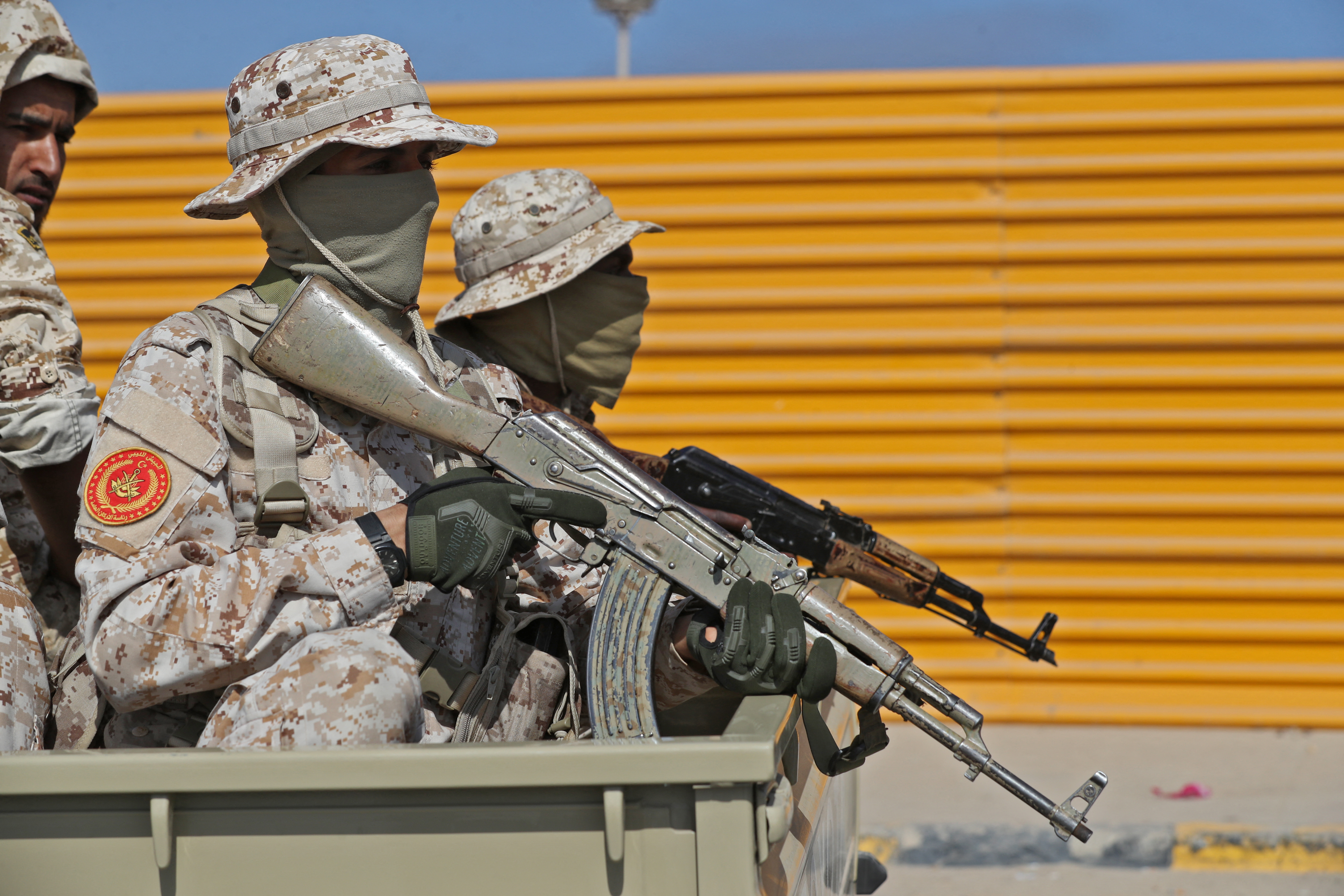
Two senior Libyan officials began two days of talks on constitutional arrangements for elections, the latest United Nations effort to bridge gaps between the country’s rivals.
Aguila Saleh, the influential speaker of the country’s east-based parliament, and Khaled al-Meshri, head of the internationally recognised government’s High Council of State, based in the west, in the capital, Tripoli, met at the UN headquarters in Geneva.
According to the UN, the talks will focus on a draft constitutional framework for elections after Libya’s rival factions failed to reach an agreement earlier in June in their last round of talks in the Egyptian capital of Cairo.
The criteria for a presidential candidacy were a contentious point in the previous round of talks, according to Libyan media.
The Tripoli-based council insisted on banning military personnel from running for the country’s top post – apparently a move directed at the divisive commander Khalifa Haftar, whose forces are loyal to the east-based administration.
Haftar had announced his candidacy for presidential elections slated for last December, but the vote was not held because of myriad issues, including controversial candidates and disputes over election laws.
There are growing tensions on the ground, and clashes between rival militias recently erupted in Tripoli.
Living conditions have also deteriorated, mainly because of fuel shortages in the oil-rich nation. Tribal leaders have shut down many oil facilities, including the country’s largest field.
The blockade was largely meant to cut off key state revenues to the incumbent Prime Minister Abdul Hamid Dbeibah, who has refused to step down.
Now, Dbeibah and a rival prime minister, Fathi Bashagha, appointed by the east-based parliament to lead a transitional government, are both claiming power. The rivalry has sparked fears the country could slide back to fighting after tentative steps towards unity last year.
Libya has been racked by conflict since a NATO-backed uprising toppled and killed longtime dictator Muammar Gaddafi in 2011. The country was then for years split between rival administrations in the east and west, each supported by different militias and foreign governments.
Al Jazeera’s Malik Traina, reporting from Tripoli, said: “Libyans here aren’t very hopeful talks are going to achieve any breakthrough.
“In the last years, since the UN started these talks, agreements are made and then when one side of the conflict doesn’t like it, things fall through”, he said.
However, Traina added that even if the talks are successful, there are still pitfalls ahead.
“[If an] agreement is made and they agreed on a constitutional framework to hold elections, which government will oversee those elections?” Traina said.
Reporting from Geneva, Al Jazeera’s Rory Challands said that the talks were aimed at moving Libya away from further conflict.
“What they are trying to do is to get the country of Libya back to an improved and more stable version of where it was on December 21 when those presidential and parliamentary elections were banned at the last minute,” Challands said.







